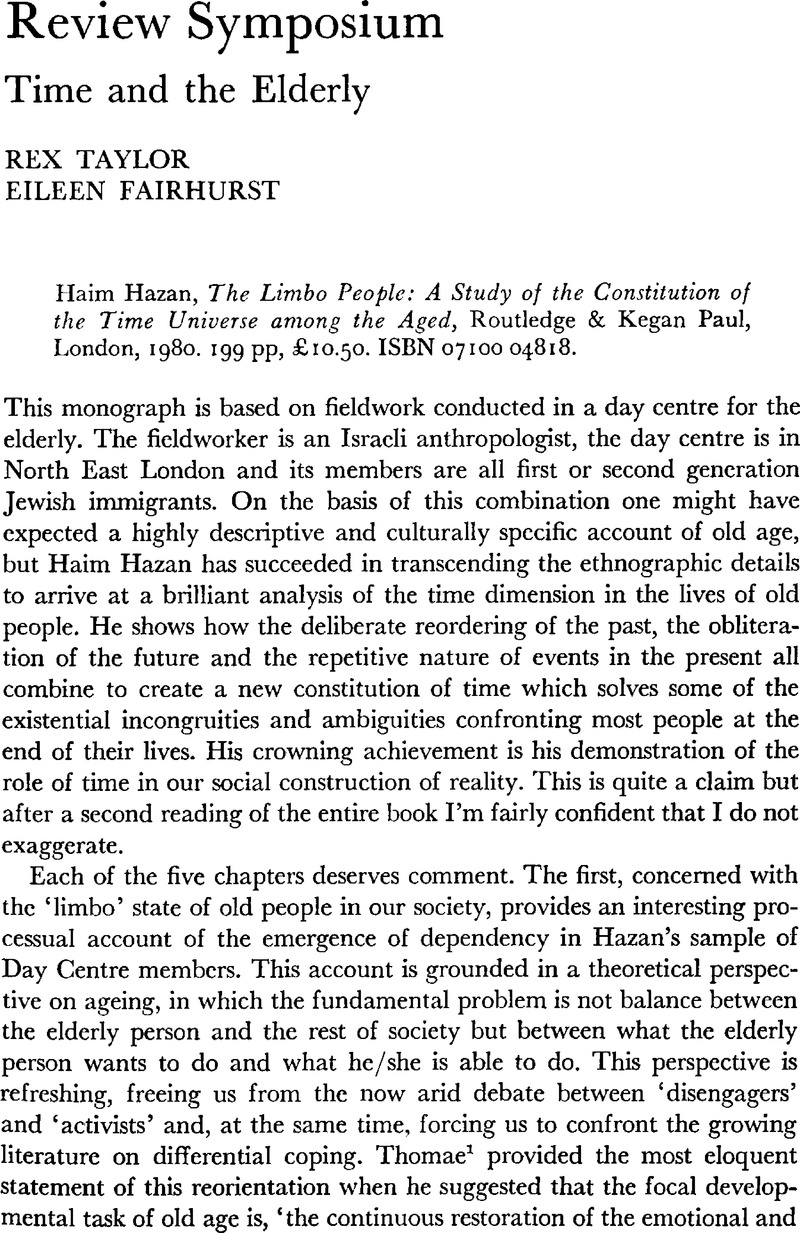No CrossRef data available.
Published online by Cambridge University Press: 14 November 2008

1 Thomae, M., Bonn Longitudinal Study of Ageing, Contributions to Human Development, Vol. 3, Basel, Karger, 1976.Google Scholar
2 Gubrium, J. F., ‘On Multiple Realities in a Nursing Home’ in Late Life, ed. Gubrium, J. F., Springfield, Thomas, 1974.Google Scholar
3 Ross, J. K., Old People: New Lives, Chicago University Chicago Press, 1977.Google Scholar
1 Elder, G., The Alienated, Writers and Readers Publishing Cooperative, 1977Google Scholar; Newton, E., This Bed my Centre, London, Virago, 1980Google Scholar; Pym, B., Quartet in Autumn, London, Panther, 1979Google Scholar; Tulloch, G. J., A Home is not a Home, New York, Seabury Press, 1975.Google Scholar
2 Hazan, H., The Limbo People: A study of the Constitution of the Time Universe Among the Aged, London, Routledge and Kegan Paul, 1980.Google Scholar
3 See, for example, Abrams, M., The Elderly: An Overview of Current British Social Research, Centre for Policy on Ageing, London, 1978.Google ScholarAtkinson, M., ‘Social Integration as a Limiting Feature of Theoretical Approaches to the Sociology of Aging.‘Paper presented at the 8th World Congress of Sociology, Toronto, 1974Google Scholar, and Johnson, M. L., That Was your life: a Biographical Approach to Later Life, in Munnichs, J. M. A. and van den Heuval, W. J. A. (eds) Dependency or Independency in Old Age, The Hague, Martinus Nijhoff, 1976.Google ScholarPubMed
4 For a development of the argument that time is a matter to which individuals orient see Fairhurst, E. and Lightup, R., ‘Are there People After 50? Issues in Qualitative Research in Growing Older.’ Paper presented to the Annual Conference of the British Society of Gerontology, Aberdeen, 09 1980.Google Scholar
5 Geertz, C., The Interpretation of Cultures, London, Hutchinson, 1975.Google Scholar